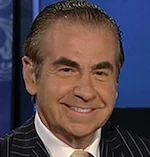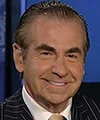 |
| Fraser Seitel |
It started when Bill Clinton lied about “having sexual relations” with White House intern Monica Lewinsky. He said he didn’t, but it turns out he did.
In the 90s, the revelation that the President of the United States had purposely lied was unfathomable. Clinton’s blatant breach of ethics opened the floodgates for the tidal wave of incivility, immorality and downright duplicitousness that dominates public discourse today.
In 2023, not only has it become perfectly acceptable for politicians, athletes, media personalities and celebrities to deceive the public, but some of society’s most notorious liars—from Al Sharpton to George Santos, from Donald Trump to Prince Andrew—are rewarded for their actions.
The latest liar to step into the spotlight is the illustrious head of the Professional Golfers Association Tour, Jay Monahan IV, who announced this month that the PGA Tour would be merging with LIV Golf, the controversial Saudi Arabian startup league designed to pay off the world’s greatest golfers to—not so subtly—help folks forget about the Kingdom’s human rights offenses, up to and including murdering dissenters.
It was only months ago that Mr. Monahan led the public offensive against the Saudi’s golf incursion, even citing the Kingdom’s alleged role in the 9/11 terrorist attacks. But that was then, and this is now. And even in the face of cries of “hypocrite” from his stunned players, Mr. Monahan’s moral outrage has subsided in the warmth of promised Saudi simoleons.
The worst part, of course, is that in a few weeks or months, as the world’s greatest golfers compete for eye-popping prize money on eager broadcast networks, buttressed by thriving streaming services and online betting sites, all will be forgotten. Jay Monahan IV and his golfers will be back to business as usual. And the diminution of ethical standards, lying and deception will continue to be the de facto communications default. All of which poses a challenge for the practitioners of the art of public relations.
In public relations, all you have is your “reputation.” Relationships are built on “trust,” and as a public relations counselor, once you lose that trust—with clients, employees, journalists, et. al.—you lose everything. Stated another way, the prevailing mantra of positive public relations is “Do the right thing.” And the cardinal rule, therefore, for public relations practitioners is “never ever lie.”
Sadly, the practice of public relations has been beset from its very beginnings by ethical questions. Ever since Ivy Lee accepted a job a century ago with the owner of the German Dye Trust, which turned out to be an agent of Adolf Hitler, the field has been largely distrusted. When Clinton lied about Lewinsky, the President called on his public relations advisors, James Carville, Paul Begala and Lanny Davis, to sow skepticism in the media with gossipy tales of the intern’s vivid imagination and questionable motives. Mr. Davis, whose subsequent public relations clients ranged from African dictators to Michael Cohen to Harvey Weinstein, even had the audacity to author a book whose premise was “always tell the truth.” Talk about a hypocrite!
So, modern public relations has always suffered a perception problem with morality. That’s why in 2023, with societal standards sinking all around them, public relations professionals must embrace, as the field’s reigning moral philosopher Jim Lukaszewski puts it, “unapologetic honesty and forthrightness and engagement with our critics.”
Here are some random examples of how Prof. Lukaszewski’s principles might work with more ethically-active public relations counsel.
Saving San Francisco
San Francisco was once America’s most picturesque city; it’s now a hellhole, riddled with crime, rampant homelessness, deranged street people and other niceties that have shattered tourism, killed commerce and imperiled its downtown.
Most recently, San Francisco’s 35-year-old upscale shopping mall, the Westfield Centre, announced that it was throwing in the towel, leaving Bloomingdale’s and Neiman-Marcus as the lone remaining luxury stores in a decaying downtown.
So, what’s the moral public relations advice for San Francisco’s reluctant liberal Mayor London Breed to reverse the city’s accelerating decline? Be strong. Get tough. Confront the critics. Stay the course. In other words, have the courage to follow through on the $14 million plan she announced in May to materially increase downtown police presence, get the homeless off the streets and declare war on shoplifters. But when ABC’s “Good Morning America” speculated that the Westfield Centre closure might turn San Francisco into a “zombie city,” the mayor’s response wasn’t reassuring.
Replied the Mayor’s office: “Lacking foot traffic in our downtown areas as a result of work-from-home habits, as well as challenges stemming from shifting shopping trends that have persisted for years, were exacerbated by the pandemic.”
Such a pathetic, pussyfooting response isn’t only unwise public relations counsel, it doesn’t augur well for the future of San Francisco.
Lightening up on Biden’s economy
The latest public opinion polls show President Joe Biden’s approval rating hovering around 40 percent. That’s bad, and he’s vulnerable, not to mention old. But when Republicans go after him on the economy, they aren’t only being disingenuous but making a pivotal miscalculation.
The criticism is unfair, because as they—and we—are well aware, it’s the independent Federal Reserve Board, rather than the President, that possesses the power to influence prices, control interest rates, impact employment and moderate inflation. So it’s Fed Chairman Jerome Powell, not Mr. Biden, who largely holds the key to the direction of the U.S. economy.
Moreover, because it appears that Mr. Powell and his colleagues are steering the economy in the right direction, by the time the presidential campaign really heats up, inflation may be tamped down and Biden may hold the upper hand. The fact that many, if not most, Americans are still working, flying, eating out and generally thriving should give Republicans pause on deriding the President for the economy. It’s simply the wrong thing to do.
Backing off on Disney shaming
And speaking of Republican angst and Biden vulnerability, current polling suggests that Mr. Biden would ultimately beat the most likely Republican candidate. Of course, that leading candidate is none other than the curiosity that is Donald Trump, so all bets are off. But … if Republicans do come to their senses and reject the Donald as their nominee, who’s most likely to be the candidate?
The answer, if he quickly embraces an immediate course correction, is Florida Gov. Ron DeSantis, who, despite his deep faults in personality and charisma, might be enough to beat a wounded Biden.
First, though, DeSantis must immediately cease his Walt Disney Company shaming campaign. DeSantis initially went after Disney to satisfy right-wingers who renounced the company’s statements supporting the LGBTQ community’s opposition to a Florida law banning elementary school discussion of sexual orientation and gender identity issues.
But instead of leaving it there, Gov. DeSantis has persisted in threatening to legislate against Disney’s business in Florida, which employs 80,000 Floridians and accounts for hundreds of millions of state dollars in commerce and tax revenues. In response, Disney CEO Bob Iger stepped up the tit for tat and announced his company would drastically curtail its planned expansion in Florida, leaving the state’s commercial future in doubt. And there Mr. DeSantis uncomfortably sits, his presidential aspirations hanging in the balance. So what should the governor’s advisors tell him to do?
Clearly, the most ethical, moral and right thing to do is schedule a meeting with Mr. Iger, agree to disagree on the social/educational issues that initially sparked the debate but bury the hatchet on the other business-related aspects that make no sense to either Florida, Disney or the political future of Ron DeSantis. Turning the other political cheek, so to speak, will help convince voters that Mr. DeSantis isn’t nearly as obstinate as his critics claim.
The point is that advising a client to “do the right thing” often requires, as Mr. Lukaszewski might put it, “calmness, character, compassion and candor.” That’s the real test of a public relations professional.
***
Fraser P. Seitel has been a communications consultant, author and teacher for 40 years. He is the author of the Pearson text “The Practice of Public Relations,” now in its 14th edition, and co-author of “Rethinking Reputation" and "Idea Wise.” He may be reached directly at [email protected].


 LSU women’s basketball coach Kim Mulkey’s attacks on a Washington Post profile as a "hit piece," before it was even published, caught the attention of five million people—a far bigger number than the readers of the paywalled article.
LSU women’s basketball coach Kim Mulkey’s attacks on a Washington Post profile as a "hit piece," before it was even published, caught the attention of five million people—a far bigger number than the readers of the paywalled article.  The art of capturing the attention of the right journalist with the right pitch.
The art of capturing the attention of the right journalist with the right pitch.
 National Security Council Coordinator for Strategic Communications John Kirby isn’t the current White House Press Secretary, yet he’s the one the media turns to for answers on the Biden Administration’s policies.
National Security Council Coordinator for Strategic Communications John Kirby isn’t the current White House Press Secretary, yet he’s the one the media turns to for answers on the Biden Administration’s policies. With live press events making a comeback, here a few hints for making yours a success.
With live press events making a comeback, here a few hints for making yours a success.


 Have a comment? Send it to
Have a comment? Send it to 
No comments have been submitted for this story yet.